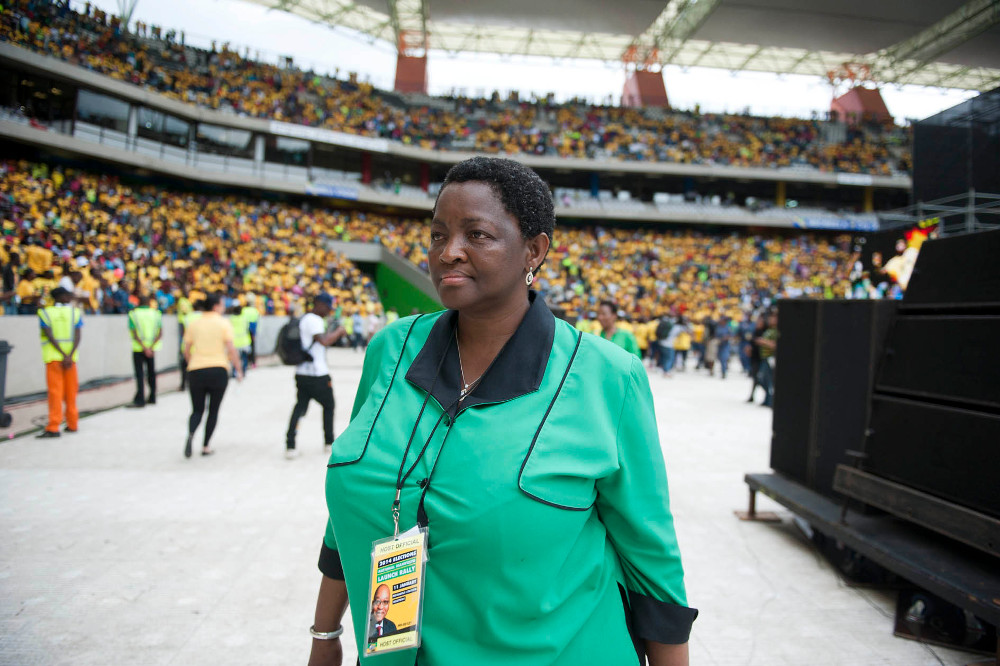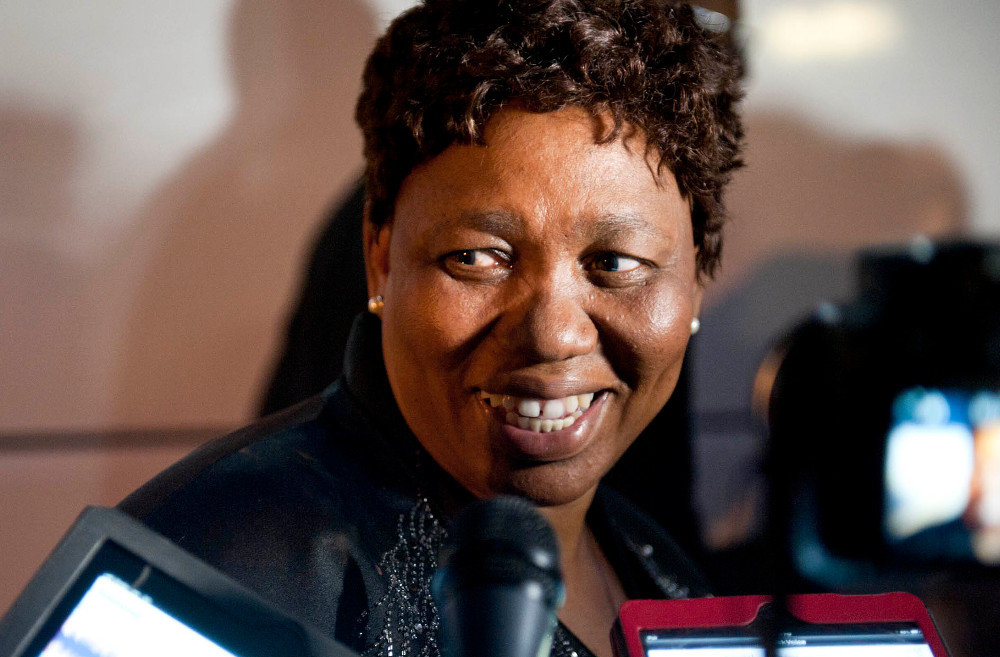The ANC’s national executive committee (NEC) has lost patience with the ANC Women’s League. It was reprimanded for failing to run political programmes that benefit women, being unable to raise its own funds and for its poor state of organisation.
One of the main causes of the league’s state of disarray is apparently a succession battle. Its president, Angie Motshekga, is likely to be challenged by the league’s former secretary general and NEC member, Bathabile Dlamini.
The Mail & Guardian has heard from four committee members who attended last month’s meeting in Cape Town that party leaders took the league to task amid impatience over the two-year delay to convene a national congress. A conference should be held every five years.
This week the league announced it would hold its conference in Gauteng next month. The ANC will foot the bill, with some provinces carrying the costs for transport, food and accommodation for delegates.
Dlamini confirmed that the NEC had chided the league. “The women’s league has organisational challenges like all organisations. I would not speak against the organisation [ANC] because I am not in the top six,” she said. “The ANC said we need to work hard, like they said to other leagues [the youth and veterans’ leagues]. There are times that as an organisation you are at your lowest. We must do what the leadership has said, that we must pull up our socks. The president was talking to all of us, even those who are not members of the national executive.
“He said we have to perform much better. I know how it feels if you are an official [national office bearer].”
‘All of us have to work hard’
Dlamini expressed dismay at the way the league was reprimanded.
“I was shocked that the leadership decided to tell us that. It takes time before the leadership can take decisions about its wings. That’s why I was shocked.”
However, she said she understood that “all of us have to work hard. The SG (secretary general) was very clear when he raised these issues during the post-NEC press conference. All the issues he raised were spot-on.”
Dlamini said that in his political overview ANC president Jacob Zuma was speaking as custodian of the party on behalf of all members.
NEC members at the Cape Town meeting raised concerns about the inability of the league to run its programmes and raise its own funds.
“They incur debts without talking to the ANC, then you get demands from creditors and when you ask them [women’s league] they say: ‘But you are ANC and we’re part of you’,” said one provincial chairperson.
Independent funding
Committee members demanded that the women’s league learn to raise its own funds. M&G sources said the league agreed that it would ensure that this became part of its congress resolutions.
Some NEC members said although league secretary general Sisisi Tolashe and national spokesperson Edna Molewa had tried hard to defend the league at the meeting, those who serve on the league’s leadership were forced to admit that action had to be taken to fix what was once a vocal women’s organisation in the country.
“They didn’t know how to defend themselves,” said one ex-officio member of the NEC. “They just said we must help them.”

National executive committee member Bathabile Dlamini agrees that the women’s league needs to pull up its socks. (Photos: Madelene Cronjé, M&G)
A second committee member said the March meeting saw a frank and honest account of the poor state of the women’s league. “Everyone wanted to know how long it takes to call a conference. They are delayed by more than two years but still they cannot sort things out.”
At the centre of the disarray in the women’s league is the dismal state of the branches and the infighting among branches.
Organisational breakdown
The second NEC member said the league’s top leaders were made to take responsibility for the breakdown of the organisation, particularly by ANC provincial chairpersons, who were said to be the most vocal.
“The (provincial) chairs were the ones that were really attacking the women, but they have reason to. Most of the problems are in the provincial structures [of the women’s league] and the national leadership has not been helping the situation,” the NEC member said.
North West ANC chairperson Supra Mahumapelo is said to have told the meeting that the women’s league was “an albatross around the neck of the ANC”.
“He said they lack the capacity to take themselves to conference and said the ANC must do something to protect its political image,” said another committee member.
Mahumapelo said he could not answer the M&G‘s questions about the NEC meeting.
Besides the league’s inability to hold a national congress on time, other committee members raised concern about the failure to run political programmes that advance women’s issues. “The president was very clear in his political overview about what they must do but, because everything is so chaotic, they can’t do anything they supposed to do,” the second committee member said.
Creative repositioning
In his political overview at the meeting Zuma called on the league to “come up with creative ways on how to reposition the women’s league to become the leading voice on women’s issues and status in the country and which is capable of defending women against any form of gender discrimination”.
Zuma added that the league “must be heard on issues of basic services, such as water, sanitation, education, health, electricity and others which affect women directly, alerting government to where the delivery of such services is delayed or poor.”

The succession battle between Angie Motshekga and Bathabile Dlamini is seen to be divisive.
The second NEC member said the committee also spoke of how the league argued for the party to maintain its policy of 50/50 gender representationin leadership positions, but failed to produce good leaders to fill these positions.
The league officials were singled out for “being too worried about positions and not about the state of women in general”.
This committee member said he believed the open discussions about the league’s bad leadership would jolt them into realising that they were quickly becoming irrelevant.
Outspoken leader
Long-serving league and NEC member Nomvula Mokonyane is said to have been one of the women leaders who was outspoken about the poor state of the league.
“Nomvula said we must not behave like ostriches and hide. [She said] the women’s league has problems and it must address them,” the first NEC member said. “Most of the people in the meeting were saying ‘the sooner they go to conference the better’.”
A third committee member, who was more sympathetic to the women’s league, told the M&G that once the conference took place next month things would stabilise.
“I heard what the comrades were saying and, yes, there are challenges. But we must just give them support and it will be okay,” he said.
Dlamini told the M&G that the league’s conference should not be seen as being “about me and comrade Angie. It’s about where we are taking the struggles of women, the consolidation of the gains made by women and about how we ensure that the strong foundation that was built by our forebearers remains intact.”
Mokonyane refused to comment on what she called the ANC’s internal discussions, saying she did not want to say publicly what she had said during the internal meeting. “The decisions that were communicated by the ANC is what all of us in the NEC have contributed.”
Efforts to get a response from Molewa, who is in Moscow, were unsuccessful.
The female voice muffled to a murmur
A national working committee report to the ANC’s November national executive committee meeting painted a picture of an ANC Women’s League that is in tatters and needs urgent help to get on its feet again.
At least nine regions in the Eastern Cape, North West and Western Cape are run by task teams and two of those –Dullah Omar and West Coast in the Western Cape – have “stagnated” and are “invisible”, according to the report. The Eastern Cape’s Amathole and Joe Gqabi regions are also being led by task teams. The North West is the worst, with all four regions run by task teams.
The better performing provinces include the Free State, where 255 of the 317 branches are in good standing.
Gauteng was found to have a functional leadership and is one of the few provinces (with Limpopo, Mpumalanga and the Northern Cape) that ANC secretary general Gwede Mantashe said is focusing on the league’s core mandate of championing women’s issues.
The Mpumalanga women’s league is “stable and functional” and demonstrates the will to do its work, but has “serious challenges of being unable to mobilise sufficient resources for its programmes”, according to the report.
Whereas the Northern Cape women’s league was found to be “active” and representing “the voice and hope of women”, it has failed to “convert the majority of ANC members who are women to join the [women’s league]”, the report said.